

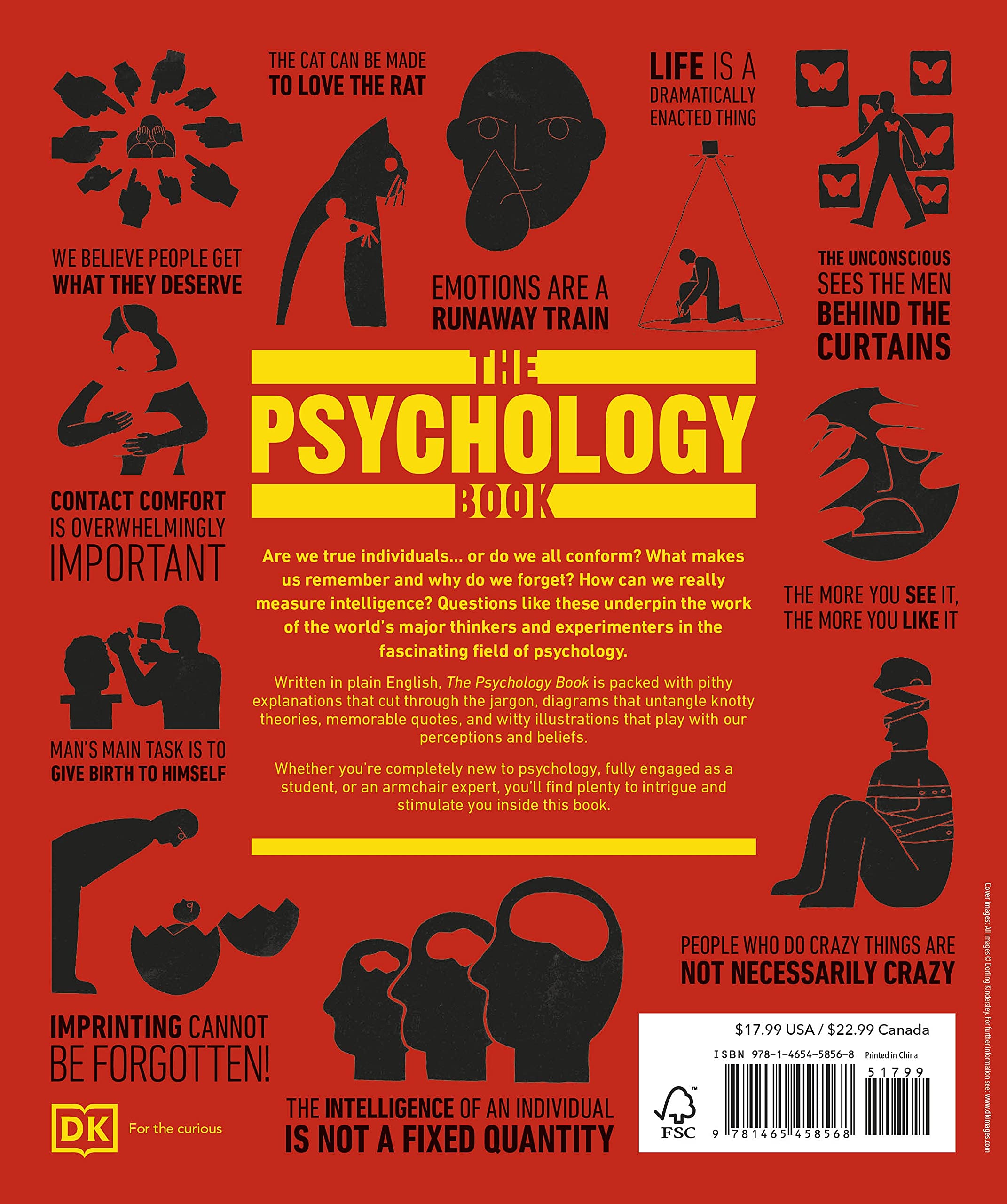
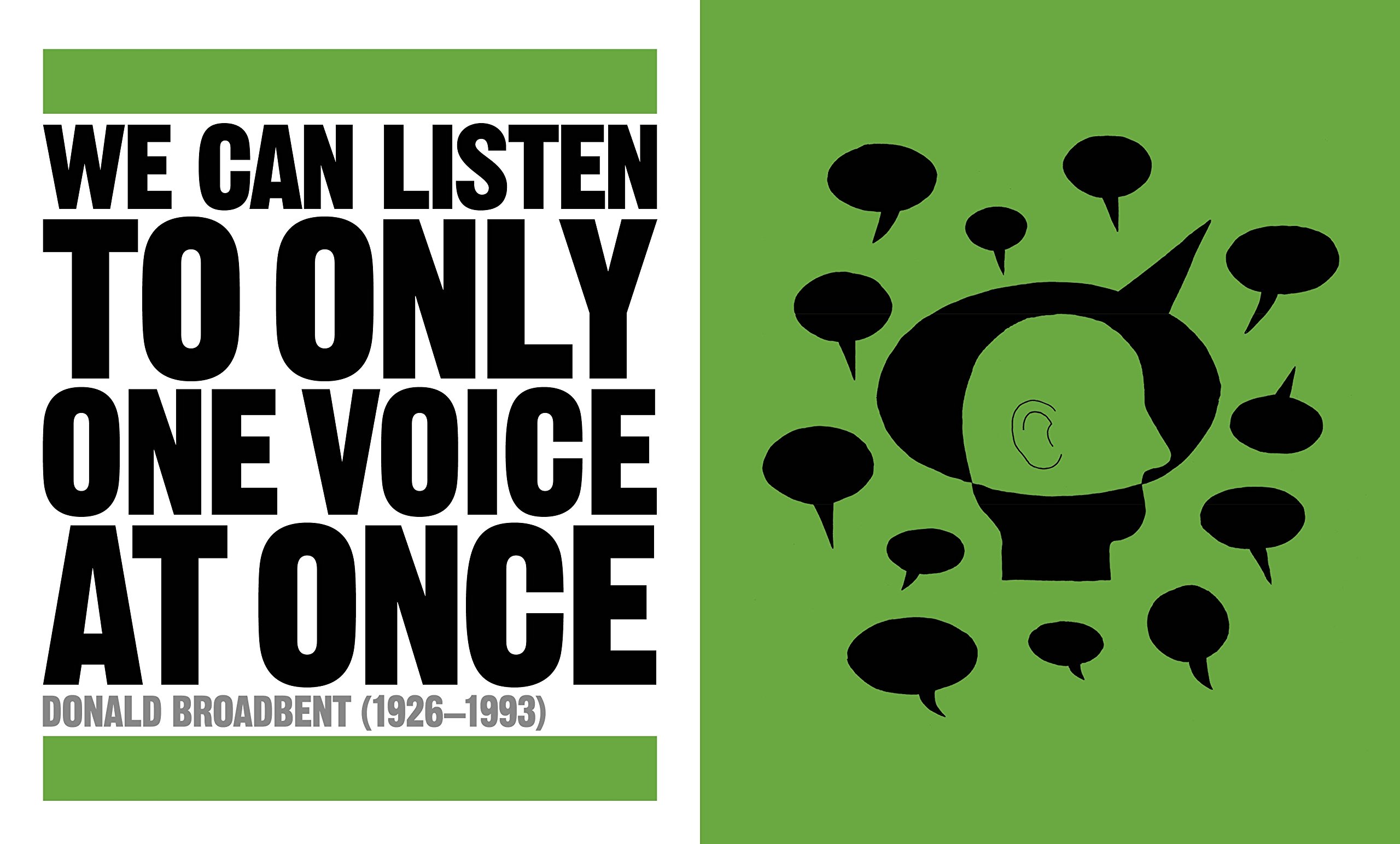
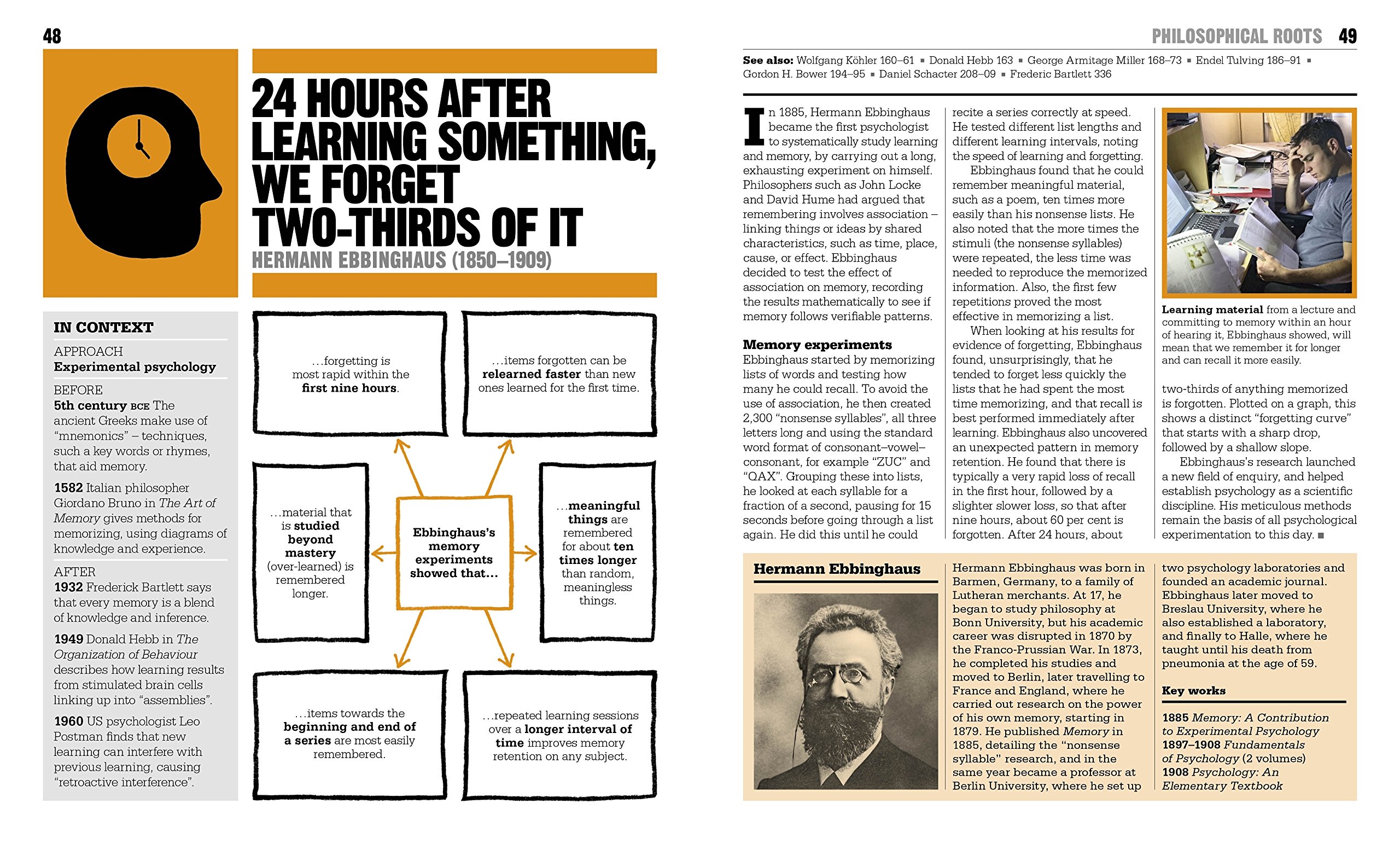
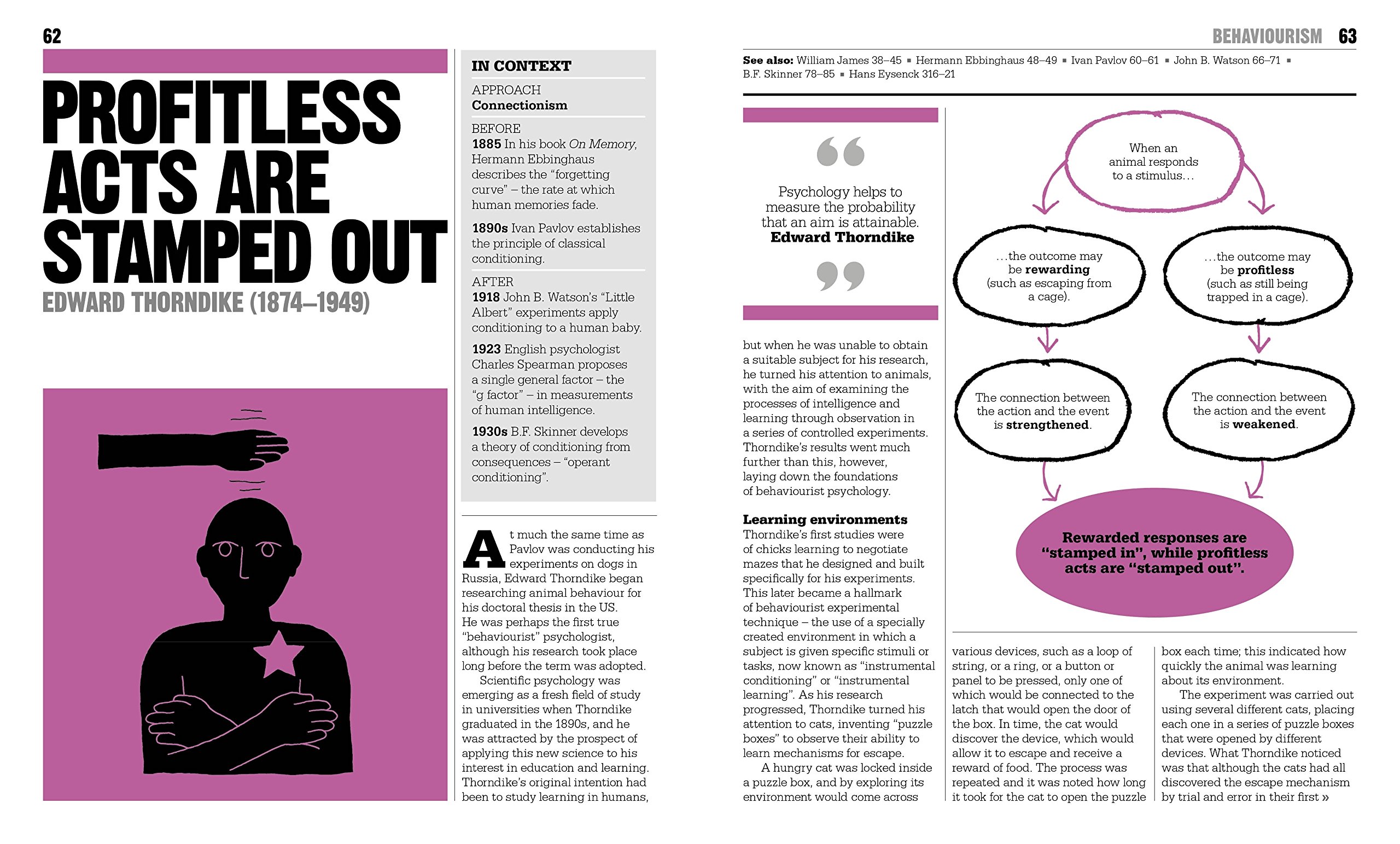
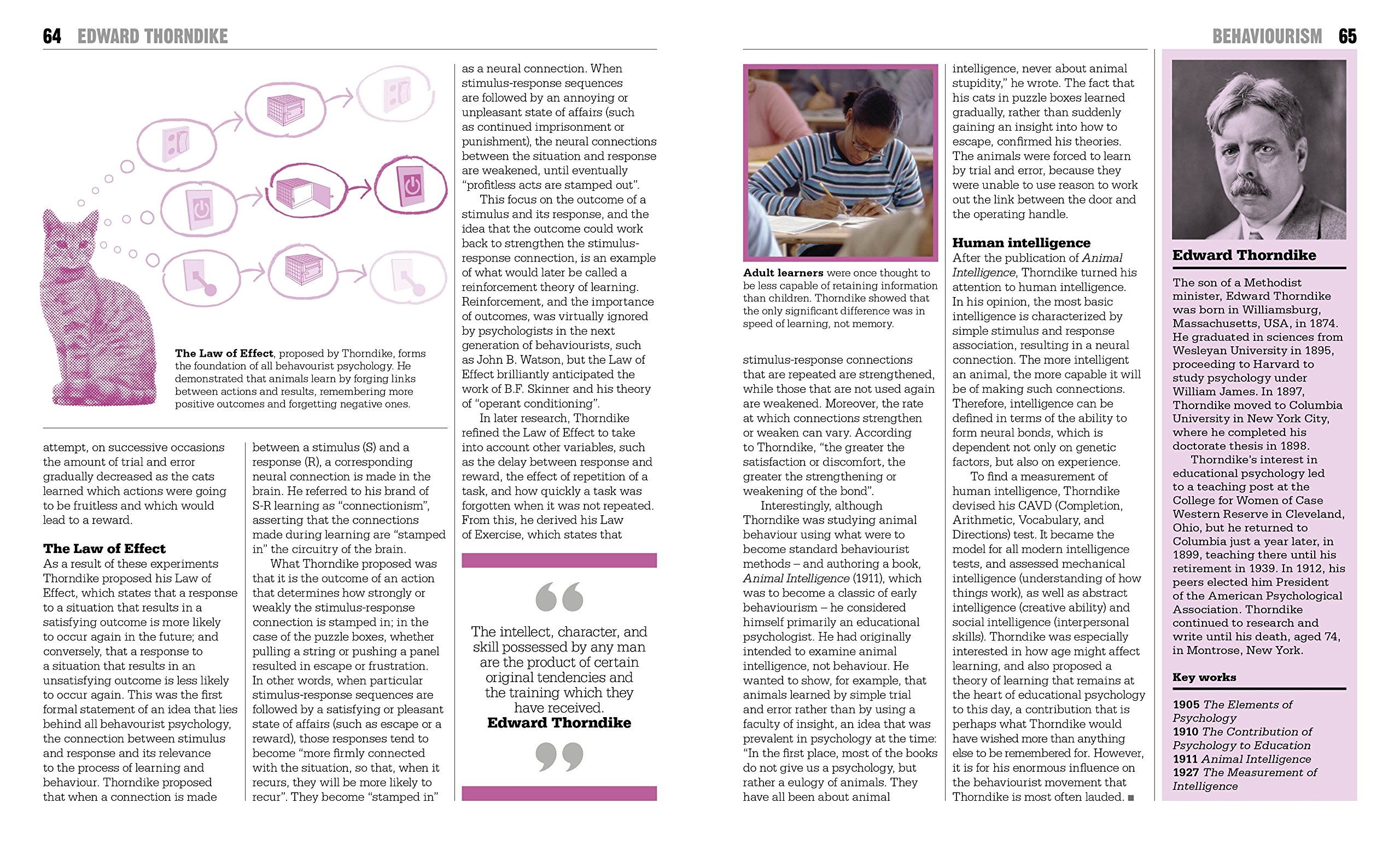
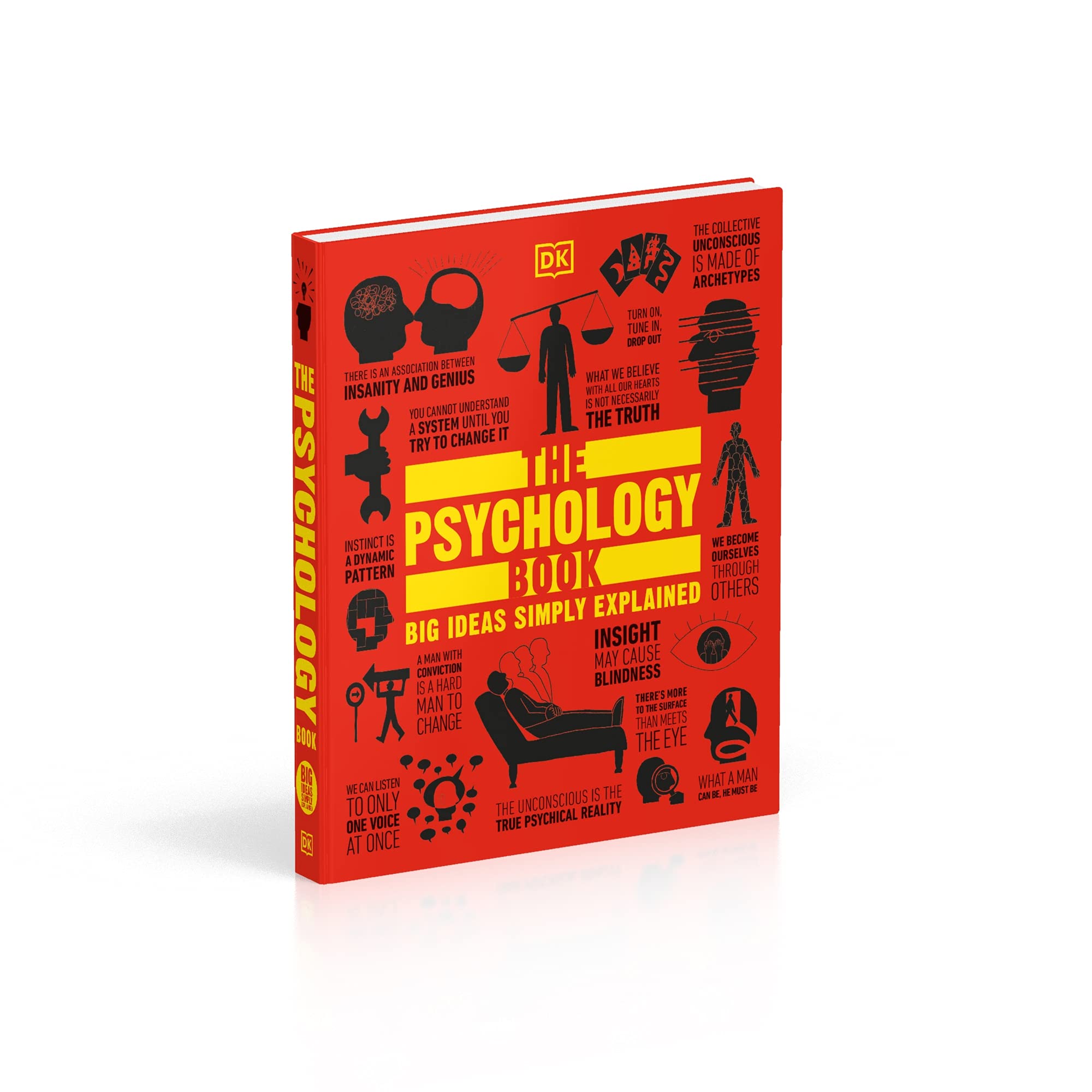
🧠 Elevate Your Mind: Discover the Secrets of Psychology!
The Psychology Book: Big Ideas Simply Explained is a comprehensive guide that breaks down over 300 key concepts in psychology, making them accessible through engaging visuals and expert insights. Perfect for professionals seeking to enhance their understanding of human behavior and improve their leadership skills.




M**N
As expected and useful
As expected and useful
B**R
Combination Textbook/Coffee Table Book is Surpisingly Engaging & Helpful
Somewhere between a textbook and a coffee table book, The Psychology Book is a surprisingly valuable. Initially drawn to the fun cover and positive reviews of The Philosophy Book, I decided to give this a shot and ordered a copy. My initial reaction was disappointment, it seemed a too textbooky. But as I read and skimmed further (it's a book that I suspect few will read cover to cover), I started to appreciate the helpful effectiveness of what the DK editors have done, allowing one to get important, core ideas quickly.After presenting the philosophical roots of psychology (think the intersection of philosophy and phsyiology), the book is organized according to different psychological approaches or schools of thought such as behaviorism, psychotherapy, cognitive psychology, and social psychology. There is a timeline and brief history for each school followed by an encapsulated entries of key thinkers in that discipline. Here is where the design and editorial approach shines, as you can peruse the pages and find psychological thinkers who you may know little or nothing about and get the essence of what they focused on quickly. Each heading has a "capture the essence" quote which makes it easy to know whether you want to explore further. My one complaint is the book, just glancingly mention Irv Yalom, who is both a great writer and highly respected psychotherapist. If you haven't read or listened (I loved the audio version, which includes an interview with Yalom) to his master work, Love's Executioner: & Other Tales of Psychotherapy, I strongly recommend it and have given it as a gift many times. Definitely a must for anyone with a literary bent and an interest in psychology.Some quotes/outtakes I liked:>"The good life is a process, not a state of being" --Carl Rogers (p.130)>"Suffering ceases to be suffering at the moment it finds meaning." --Viktor Frankl (p. 140)>"Compulsive behavior rituals are attempts to control intrusive thoughts." --Paul Salkovskis (p.212)I especially like this last one, as it's interesting to think of our obsessive thoughts (even if we don't engage in compulsive behavior) as attempts to control or prevent uncomfortable thoughts or emotions instead of just trying to experience them directly, as they are.There are many nuggets like that in the recommended book.
A**R
A page turner
There is a lot of information and ideas here, so many perspectives. The human mind is complex. The history of psychology has many conflicting views, all of which are worth considering. It was hard to put it down.
B**E
Not exactly what I was expecting
I have an above average IQ and I've always been interested in psychology (I have studied a good bit of it.), but some of the areas in the book are difficult to follow. Not most of them, but a few topics I had to read multiple times and I still didn't understand what point they were trying to make.I was stuck between 3 and 4 stars because I'm disappointed in the book as a whole... But I'm still glad I bought it. Most the ideas here are very interesting. But they are more of a starting point than simple explanation of the whole idea. Some of them are so specific I think it would be hard to follow up with Google to learn more about the topic. That being said I have learned concepts that I didn't know existed. It definitely covers a lot (not all) areas of psychology.(I've included photos of Contents. Sorry about the highlighting! As you can see some of the chapters have a silly title that don't make sense until you read it. Like: 'The magical number 7, plus or minus 2')This is a book that very few people will read cover to cover. You would most likely fall asleep. I found it most satisfying to read topics I thought might relate to me. I also skimmed through some of the chapters with a title that made no sense. Like, the "Dormez!" chapter is about hypnosis. There were also a lot of concepts that had nothing to do with the title.I don't know, I think this book must've been written for a very specific person because it wasn't what I expected. The "Big Ideas Simply Explained" is more like, "A Little Taste of Big (specific) Ideas".Another disappointment to me was that a lot of the studies provided as evidence were made between the 1950's - 1970's. For example, the concept about child development between infant and mother. The idea was that in the first two years of life, if child and mother didn't create an attachment or if the mother was detached, the child would suffer from emotional problems that appeared during adulthood. (Not able to make one-on-one relationships or attachments with one person.) This bond could not be replaced by the father because the father was hardwired to be the provider. back in the 50s through 70s it was uncommon for mother to be a provider. Therefore there couldn't have been sufficient studies on families where mother was a primary provider. Which we all know that is the case often with families today. Plus a LOT of single parent families.Of course this book is based simply on ideas from specific experiments and studies. A lot of the topics in the book don't give a lot of evidence as to why the psychologist believes one way or the other, just that he/she DOES believe it.It's still a good book in my opinion. It's a good way to come to your own conclusions or look further into each idea. It's just not a hard facts kinda book which I guess is what I was looking for. "Ideas" is the main word here.UPDATE: The more I read into this book the more I realize that this book would be PERFECT for small group discussions. (Maybe in like a classroom setting.) It's kinda painful to read this alone because a lot of the topic's conclusions are based on preferences and opinions. I'm sitting here in my mind like "No way, how could someone think that!" And I end up telling my side of the story to my husband--who has no idea what I'm going on about. There's more "dud" topics in this book than there should be, but there's few that are really interesting and get you to THINK.I hope my review was helpful to you! I would probably buy the book again if I could, just with different expectations.
L**E
Easy and informative read
This is my kind of book. I am always furthering my education beyond what I am learning at University. Because I am still in college and reading constantly I really appreciate the format of this book. It is organized by the different divisions of psychology from social to child and within are the most significant people, theories, experiments, and concepts in a short story format. This makes it easy to learn a lot of information on limited time. This book is to the point on each subject and filters though unnecessary information and gives you what you need to know right away. I can enjoy learning new things outside my coursework because this book gives information in this short story format. I have taken a couple of courses in psychology but this book does not require the reader to have previous information in psychology in order to appreciate the knowledge the book contains. After this book I bought the religions and philosophy book by this publisher and will buy the business one as well when it comes out. Overall for the learner who is limited on time this (and others by the publisher) are for you. If you want something that is more specific, get something else because this one is an overview of all.
N**B
Great for a
Coffee table book. Everyone is interested to look through it when they come over.
S**Y
Good reading
The media could not be loaded. Informative
S**A
Great quality and content.
It arrived in great conditions. Excellent content to learn about psichology. Very recommended.